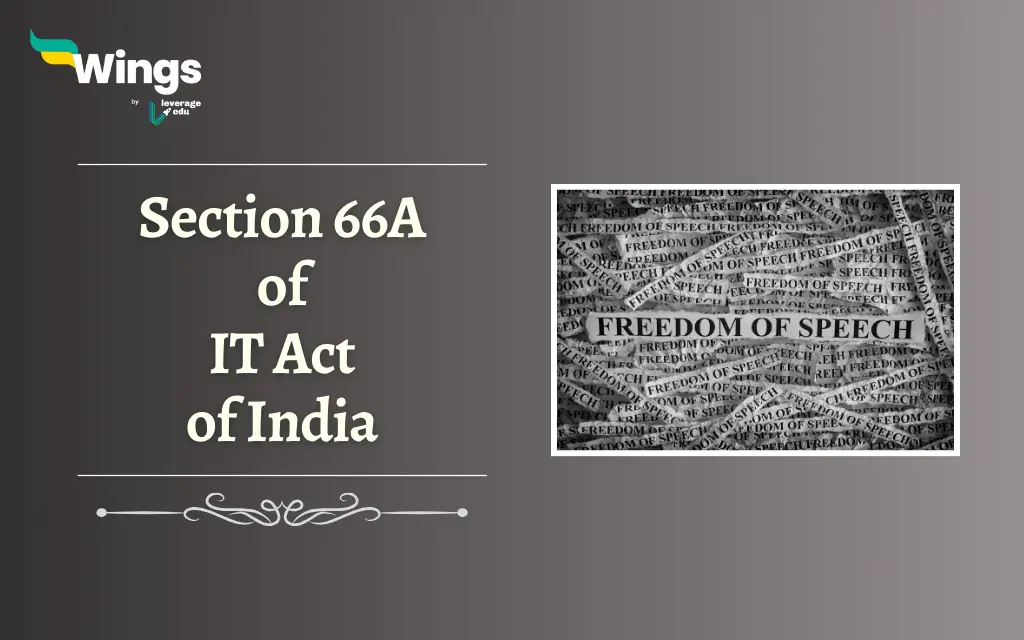Section 66A of the Information Technology (IT) Act of 2000 was a controversial provision. It aimed to regulate online communication by punishing certain acts of sending offensive messages through communication services. Furthermore, this was passed to address cybercrime and protect against online harassment. However, Section 66A of IT Act faced criticism for its broad and vague language. Moreover, it potentially suppressed Freedom of Speech and Expression on digital platforms. Read on to learn more in detail about Section 66A of IT Act and the cases involved.
What is Section 66A of IT Act?
Section 66A of the IT Act criminalized the sending of “offensive” or “false” information through communication devices which includes computers and mobile phones.
- Additionally, it aimed to curb cybercrimes such as harassment, defamation, and the spread of misinformation.
- However, the Section’s unclear wording led to misuse.
- There were instances of people being charged for harmless social media posts and criticisms of public figures.
Also Read: Who can Suspend the Fundamental Rights of Indians?
What are the Cases under the Section?
Furthermore, there were many cases that brought attention to the misuse and ambiguity of Section 66A of IT Act.
- One notable case involved the arrest of two young women in Mumbai in 2012 for criticizing the shutdown of the city after the death of a political leader on Facebook.
- Another instance occurred in 2015 when a man was arrested in West Bengal for posting a caricature of a political figure.
Also Read: What was the 1st Amendment of the Indian Constitution?
Section 66A of IT Act was held Unconstitutional in the case of?
Section 66A of the IT Act was declared unconstitutional by the Supreme Court of India in the landmark judgment of Shreya Singhal v. Union of India in 2015.
- The court ruled that the provision violated the Fundamental Right to Freedom of Speech and Expression guaranteed under Article 19(1)(a) of the Indian Constitution.
- The judgment highlighted the need for clear and narrowly defined restrictions on speech to prevent dictatorial and excessive censorship.
Related Blogs
| What is Adjournment Motion? | Meaning of Zero Hour |
| What is the Doctrine of Colourable Legislation? | What is a Writ of Prohibition? |
| What is the Difference between Fundamental Rights and Directive Principles? | What is the Difference between Fundamental Duties and Directive Principles? |
| What is Universal Adult Franchise? | What is the Difference Between Fundamental Rights and Fundamental Duties? |
Lastly, we hope you liked our blog and gained an understanding of Section 66A of IT Act. Moreover, you may even read more blogs and empower yourself with knowledge regarding Civics and Polity!


 One app for all your study abroad needs
One app for all your study abroad needs












 60,000+ students trusted us with their dreams. Take the first step today!
60,000+ students trusted us with their dreams. Take the first step today!